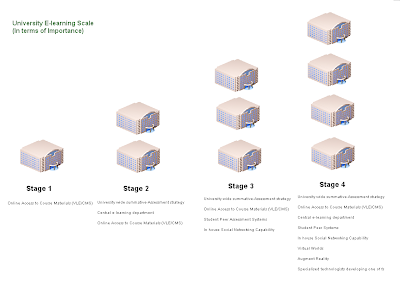Think about it, we badger on about social networking for all types of things, for business to get together, for students to do collaborative learning and for us all to socialise together.
Now do we practice this ourselves, wouldnt it be great if the University itself had a social network, allowing each other to share best practice/ideas/reasearch etc. Lets say Academic A has been trying some really cool stuff that lecturer B would never probably get the chance to see or hear about. You could make postings that way and allow people to subscribe to feeds on e-learning or whatever subject you wanted to.
Now we things like intranets etc which is sort of like this, but does not provide the personality of a social network, then we could have sub groups for the sub committees, if someone has interest or a speciality that they would like to share then they could join that group as such and provide feedback that way. It could make interpersonal working more friendly etc, I have found social networking does not really work for small teams you need a pretty hefty user group to work best, providing a lot of posts. The other benefit of a large cohort is that you are just a number, this makes it a lot more easier to voice opinions etc without judgement.
That is not without problems:
Implementation
Engagement
Privacy etc
But is that not you have with social networks anyway??



